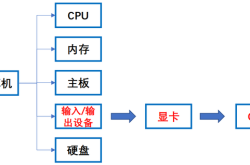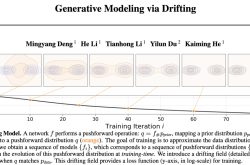Kimi is mired in equity turmoil, capital war behind soaring valuation
![]() 11/12 2024
11/12 2024
![]() 607
607


"Involvement with the old company may have led to equity conflicts, which have a significant impact on future development."
@TechInsights Original
Yang Zhilin, the founder of Kimi, the most dazzling star of entrepreneurship in China in recent years, is in trouble.
According to a report by Anewswire, Yang Zhilin and Zhang Yutao, co-founder of Kimi, were recently arbitrated in Hong Kong due to shareholder disputes with their previous company, Xunhuan Intelligence.
According to insiders, the applicants for this arbitration are from Xunhuan Intelligence and five out of its seven investors: GSR Ventures, Jingya Capital, Boyu Capital, Huashan Capital, and Wanan Capital.
The reason for this arbitration application may stem from the fact that Yang Zhilin and Zhang Yutao did not obtain consent exemption letters from several investors of Xunhuan Intelligence when initiating financing and founding Kimi.
Regarding this, David Morrison, a senior partner at Mingde Law Firm, said, "Our firm has accepted the mandate from Mr. Yang Zhilin and Mr. Zhang Yutao to focus on this arbitration matter. We believe that this matter lacks both legal basis and factual foundation, and our firm will raise defenses in accordance with the law."
01
Dual Identities and the Path of Entrepreneurship
Looking back, Yang Zhilin can be considered a popular "spicy chicken" in China's venture capital circle. Some media outlets have even directly labeled Yang Zhilin as the first post-90s entrepreneur in China's large model industry, and his outstanding abilities have made him the most favored entrepreneur by capital.

Yang Zhilin, Founder of Kimi
In terms of academic background, he graduated from the Department of Computer Science at Tsinghua University with the top grade in his year and then pursued a Ph.D. at the Carnegie Mellon University Language Technologies Institute (LTI) under the supervision of Ruslan Salakhutdinov, the head of AI at Apple, and William W. Cohen, the chief scientist of Google AI.
It was during his Ph.D. studies that Yang Zhilin embarked on his first entrepreneurial venture, co-founding Xunhuan Intelligence, which aimed to apply NLP, voice, multimodal, and large model AI technologies to create "sales technology" solutions. Xunhuan Intelligence has completed six rounds of financing, with investors including Sequoia China, Boyu Capital, GSR Ventures, and ZhenFund.
Before 2019, the founding team of Xunhuan Intelligence held equal equity, with Yang Zhilin primarily responsible for AI research and development but not serving as CEO. Balancing both academics and business, Yang Zhilin was actively pursuing both paths during those years. As a result, Xunhuan Intelligence's valuation once reached over US$200 million.
Until the sudden surge in popularity of large models in 2023, VC firms also attempted to find China's OpenAI. However, talent with relevant experience in large models was scarce in China, and there were only a handful of young entrepreneurs with experience in large model research and development who were willing to start their own businesses. Yang Zhilin was an exception.
While Xunhuan Intelligence, which focuses on SalesTech, had limited growth potential in the new world disrupted by generative AI in 2023, this new entrepreneurial venture was still connected to the old company.
For example, the technical team of over a dozen people that Yang Zhilin led during his time at Xunhuan Intelligence followed him to the new company. The entire office space of Kimi is still within the Xunhuan Intelligence office. Another former Xunhuan Intelligence employee also revealed that all future algorithm research in the ToB field by Kimi will only benefit Xunhuan Intelligence and not other companies.
To a certain extent, this is a shell-swapping story. Xunhuan Intelligence's business had limited growth potential, resulting in limited financing capabilities. The ToB business was too restrictive for a mind like Yang Zhilin's, who needed a platform with more freedom.
However, it may have been the entanglements with the old company and its people that led to this conflict.
02
Soaring Valuation Triggers Equity Disputes?
Some analysts believe that this conflict partly stems from the soaring valuation of the new company, causing dissatisfaction among Xunhuan Intelligence's investors regarding their shareholding ratio. Some of Xunhuan Intelligence's older shareholders expressed their dissatisfaction through legal letters as early as the first half of this year, and several well-known investors mediated, but ultimately, no settlement was reached.
Several investors stated that non-compete clauses, minimum service period restrictions, and restrictions on second ventures for founding teams are common in equity financing agreements, restricting the possibility of founding teams starting new ventures. When a serial entrepreneur founds another company, many investors will not disburse funds if they have not obtained exemption consent letters from previous investors. However, in practical operations, many institutions also agree to "post-event handling" and provide corresponding compensation measures.
In other words, even though institutions participating in Kimi's investment have likely taken corresponding risk aversion measures, when it comes to a star startup, "such matters are still troublesome."

Kimi
The principle is simple. In the past, handling such issues within the industry usually involved compensating the original investors, whether through equity or financial compensation. However, the problem arises when the new project is a star project. Because once the new project grows and becomes valuable, entrepreneurs may not want to give more, while investors do not want less. If negotiations fail, the only recourse is litigation.
In fact, a clear, stable, and dispute-free equity structure for the founding team is the primary criterion for IPO and equity investment. For Kimi's investors, it is evident that the founding team did not intentionally conceal information, as some shareholders were aware of the situation - Sequoia China invested in both projects. So why did some investors overlook this critical factor? The answer is somewhat intriguing.
It is worth mentioning that since its inception, Kimi's financing process has been relatively smooth. Especially with the recent investment of US$1 billion from Alibaba, it achieved a key leap, with its valuation exceeding US$3 billion, making it a star enterprise in the large model field. This financing also allowed Alibaba to acquire nearly 40% equity in Kimi.
According to an industry insider familiar with the strategic investment ecosystem of large companies, Alibaba has also intervened in handling this matter. However, since Hu Xiao, the person previously responsible for this investment, left Alibaba in September, the new strategic investment head, Shen Chen, is now following up and coordinating.
In this storm of entrepreneurship and investment, Yang Zhilin's talent and determination are undeniable. However, this dispute with his previous company and investors undoubtedly casts a shadow over his entrepreneurial journey. Facing the pressure of arbitration and public opinion, he must handle the situation cautiously to avoid affecting Kimi's development momentum. At the same time, this also serves as a wake-up call for the venture capital circle, reminding all parties to prioritize cooperation and trust while pursuing interests, jointly creating a healthy and stable entrepreneurial environment.








